Researching the Genealogy of African Americans Part 2
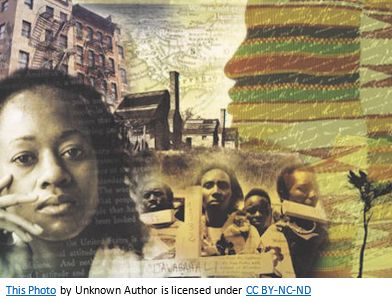 27
27Jan

In the first part of this series, we learned how to use the name of an African American person to narrow down possible slaveowners living in the same area where our person may have resided. In this post, we will explain a process of how and where to continue our search.
In the case we were working on, the name of the slave owner was David Jackson. He lived in Amite County, Mississippi in 1850, and we isolated a portion from the U.S. 1850 Slave Census showing us he had at least one female slave born about 1847 living on his plantation.
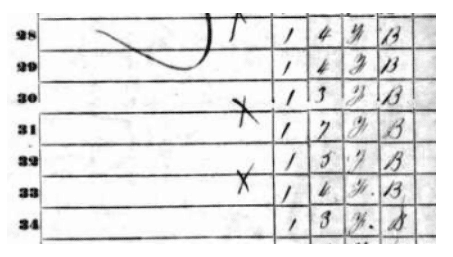
Lines 30 and 34 indicated three-year-old black females. Now that we have this information, what do we do next? We know it’s a guess that our person was living there, but how can we find a name to verify our search? One strategy is to look for the slave owner David Jackson. We go to either Ancestry or FamilySearch and enter the name David Jackson. We use the search terms necessary to imply he lived in Amite County (Residence) in Mississippi in 1850 (Residence Year [Range]), and see what comes up:

In the first entry, we see a regular census record for a David Jackson which looks promising. Then we see the second entry and find indexed the exact slave schedule from where we extracted our clip (above). They both lived in Amite County, Mississippi at the same time and are likely the same individuals. The important thing is we have established a birth year for David Jackson to help us pinpoint our search. Our goal now is to find out when he died, hoping for a will left behind or else a probate record which may name the person we are seeking. We take a look at the census record and see the name of his wife and a list of some of his children. These are important markers for identifying the right will or probate record.
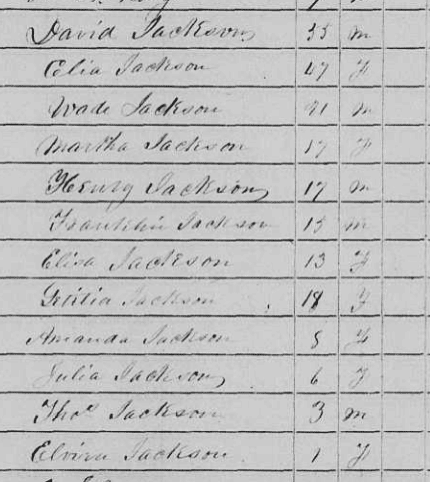
We go back to the search feature and add a birthdate for David Jackson and try again. In FamilySearch, the records come up with two tabs at the top. To pinpoint the search, we hit the “Collections” tab, and find some choices. The fifth choice is a record collection titled “Mississippi Deaths and Burials,” and the date range is very promising. We check the box, double click on the title, and search!
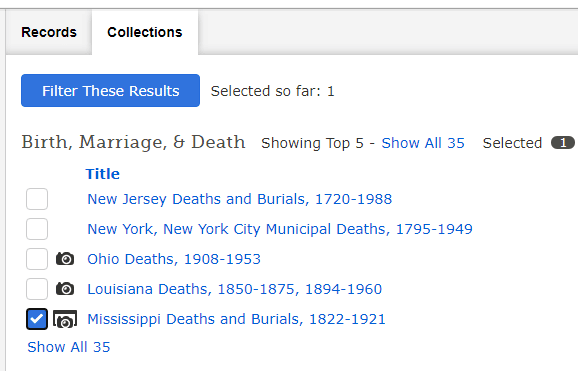
Unfortunately, only six choices came up, and none of them had David Jackson’s death occurring in Amite County. We have one more clue that I will mention. In our initial search for Mr. Jackson, his name did not come up in the 1860 Slave Schedule as an owner, only for 1850, so it is likely he may have died before that time. This first try was in FamilySearch, and it didn’t reveal a good lead, so, remember the adage for researching African American individuals? Persevere! We go to a different website, in this case, Ancestry, and search for David Jackson who lived in Amite County, Mississippi, born 1795 and then we add a death year of 1855, half-way between 1850 and 1860, checking the “Exact” box to include five years before that date and five years after. This gives us a wide berth of choices, but also narrows down the time frame for that ten-year period.
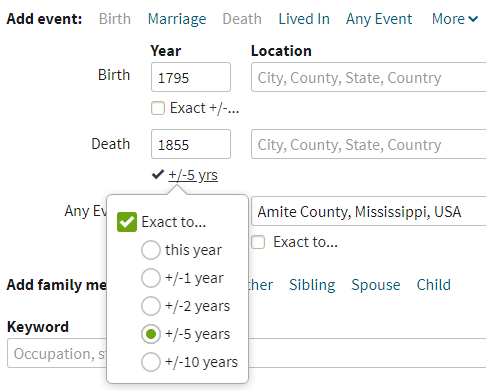
We click the “Search” button and get several hits, but the first two give us a death date: 2 Sep 1858, Amite, Mississippi. Continuing to narrow down the records, we look to the left of our screen and see more choices and a way to filter by categories:
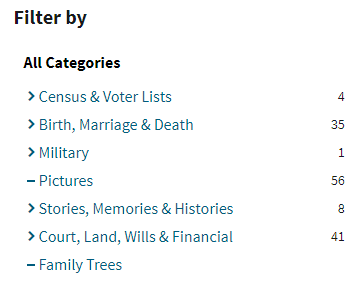
Our focus question for this part of our search is, “Is there a will or probate record for David Jackson?” It looks like there are 41 choices for “Court, Land, Wills & Financial,” so we double click on that title. Here is one of the results:

Now we can get excited! The little icon next to the words “Mississippi, Wills and Probate Records” indicates there are online pictures of the pages (123) of David Jackson’s probate. The large amount of record pages also confirms that he was likely a former slaveowner, living on large property with a lot of children who were the benefactors of his goods he left behind. There is a lot of information to sift through, but it’s true that several slaves were listed by name in the probate record. Here is a small clip of one of the pages:
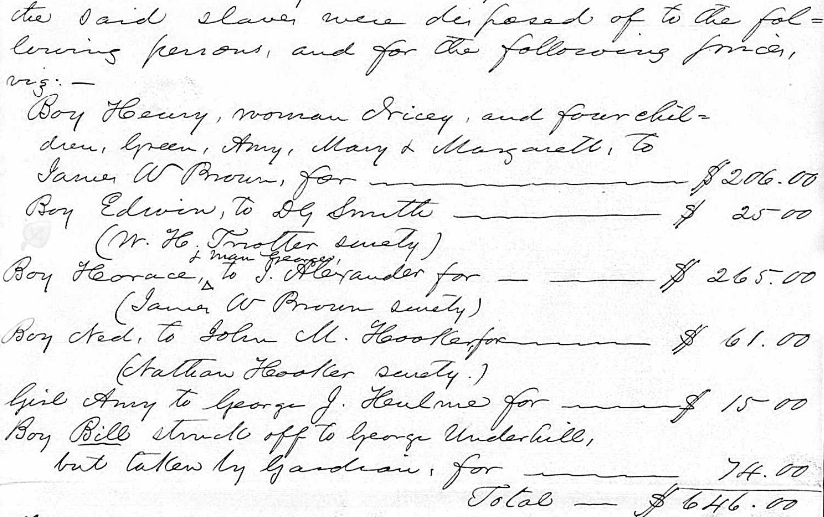
In this example we can see listed a portion of the slaves that were sold off, and in this case, a whole family was separated to new “owners.” Sometimes the slaves will be listed with their ages. If, by chance, while searching, we find the name of our person we are looking for, it’s possible to draw a conclusion they may have been living there on the Jackson plantation at that time. And in the case of this record clip, there is an additional name of whom to our person was sold, giving us another “bread crumb trail” to follow.
There are several other places and ways to search, which will be addressed in part three of this blog series. Our expert researchers with Price Genealogy know how to solve your African American genealogy challenges. We are here to help you.
Beth
